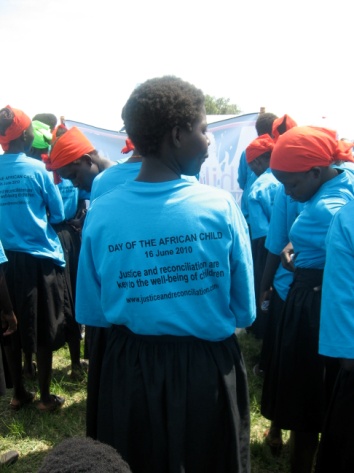This inaugural issue of Field Notes focuses on the process of reconciliation at the grass-roots level in northern Uganda through the story of Alice, a 24 year-old Acholi woman living in Anaka camp. Abducted by a group of the LRA rebels in 1996 when she was fourteen, Alice was forced to kill her sister in order to save her own life. She has been haunted by the experience ever since, and believes that her sister will not let her or her family rest until she reconciles with her past.
Alice’s story provides insight into the spiritual dimensions of Acholi culture, unearthing the possibilities of reconciliation through traditional approaches at the grass-roots level. Many of the Acholi people pursue justice and reconciliation based on an intimate relationship to the spirit worlds. Children and youth returning from the ‘bush’ are often stigmatized and considered to be ‘unclean’ until they reconcile with what they have done or experienced. The institution of cultural leaders representing the majority ethnic group in the north (the Acholi), Ker Kwaro Acholi, have begun to lay the foundation for reviving and adapting traditional approaches, holding symbolic cultural ceremonies to foster social trust and build legitimacy in the process.
Yet as Alice’s story illustrates, the impact of the conflict on social relations – including the legitimacy of the traditional leaders – and the requirements of traditional bylaws and customs are difficult to realize in the current setting of extreme poverty and insecurity in displacement camps. This Issue of Field Notes, then, provides an important preliminary insight into the possibilities of Acholi cultural approaches at the grass-roots level, but also highlights the many challenges and paradoxes to this approach, concluding with a set of recommendations to different stakeholders wishing to support the process.
To access the report, click here.

